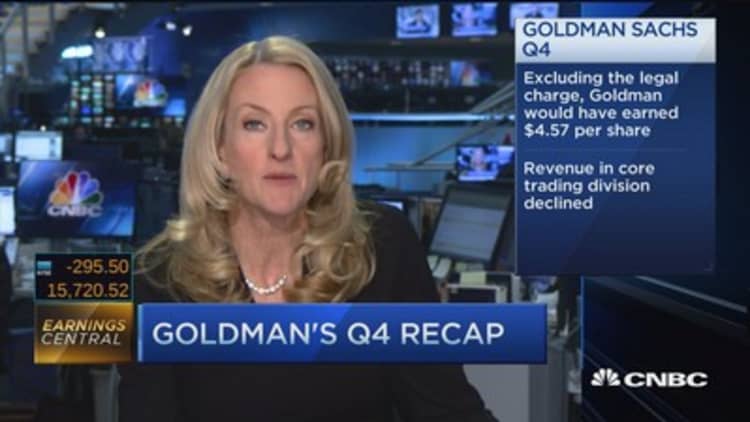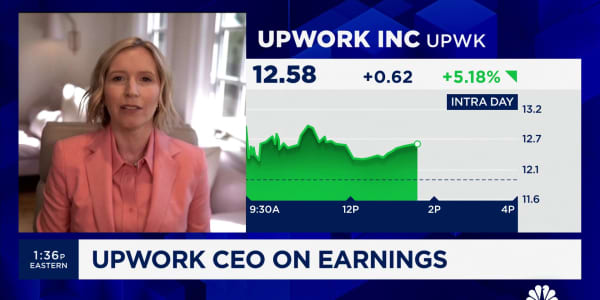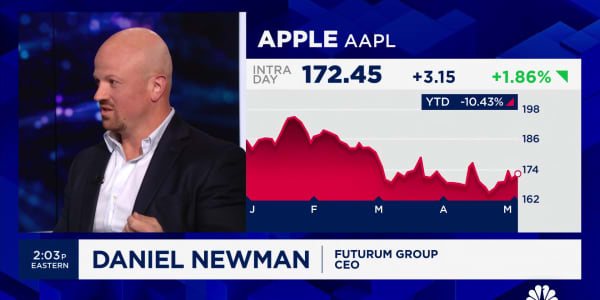
A confluence of factors going against Wall Street banks has their stocks outpacing the declines of the broader market.
One Wall Street analyst is chalking up big banks' stock plummet to prolonged pain in the energy sector stemming from plunging commodity prices. Worse still, he said there is still no end in sight.
"The expectation is that loan losses are going to pick up and wipe out earnings in 2016," said Dick Bove, vice president of equity research at Rafferty Capital Markets. However, he added, "at this moment, [loan losses] are not that bad."
Read MoreBig banks back off mortgage market
Until the oil market finds a bottom, Bove said, expect bank stocks' decline to keep outpacing that of the broader market. During Wednesday trading, benchmark West Texas Intermediate trimmed more than 6 percent and fell beneath the $27-a-barrel mark.
Wall Street banks have tens of billions of dollars of exposure to energy sector loans, and have been setting aside hundreds of millions to offset potential losses that are expected to come in the next few months as more lender defaults are anticipated. The longer it takes the commodity to rebound, the greater the potential for banks' exposure.
But another macro factor weighs on banks that could have investors still selling off regardless of what happens to the price of oil. Market turbulence may impact the Fed's decision-making process in regard to rate hikes. And, for big banks on Wall Street, a boost in the price of credit would be a boon for their businesses.
Read More JPMorgan takes hit due to oil rout
"Rate hike expectations are being dialed back, and folks were hoping that would help banks," said one bank's senior economist, who asked to not be quoted because he was not authorized to speak on the matter.
The impact from rates not increasing would weigh directly on Wall Street; big banks were expecting a boost in net interest income, meaning they earn more on higher interest rates. If the Fed doesn't follow through on anticipated rate hikes, it may lead to more investors dumping banks' stocks.
In trading Wednesday, most Wall Street banks once again underperformed a broadly declining market.

Goldman Sachs, which reported better-than-expected earnings Wednesday morning, was the lone bank to see stock trade above the market sell-off. Shares were down more than 2 percent in midday trading and 12 percent to start 2016.
Harvey Schwartz, the bank's CFO, said Wednesday on the bank's earnings call that "it does feel at this stage that the market is discounting the decline of commodity prices," adding that the firm is "well positioned" to deal with energy sector loan losses in 2016.
Wall Street's loss leaders Wednesday included Bank of America, which saw shares down more than 5 percent in midday trading as the Dow trimmed more than 400 points, Citigroup, off more than 4 percent and Morgan Stanley, down 5 percent in midday trading. Each of the stocks is down more than 16 percent to start 2016.






